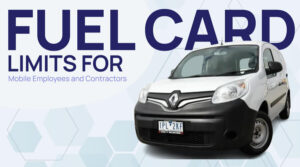The Australian Tax Office (ATO) happens to have an easily navigable website that gives a nice intensive overview, and so we’ve compiled the relevant information to give you a comprehensive rundown on how you should go about paying your company vehicle taxes.
Capital Gains Tax
Capital Gains Tax (CGT) is tax paid on assets whenever they are sold. This tax is usually paid on Stocks, Property, or Bonds. Thankfully, vehicles are exempt from these taxes. The (ATO) has classified these vehicles as “a car as a motor vehicle designed to carry a load of less than one tonne and fewer than nine passengers”. As long as your company vehicle fits this description, you don’t have to worry about paying taxes for it.
Company Vehicle Expenses
The ATO has set guidelines on how to keep track of a company’s vehicle expenses. As long as the vehicle is essential in the day-to-day running of the business, the company can claim a deduction for the use of said vehicle. A company can also claim depreciation of the vehicle as a deduction, which you can read all about here.
There are two ways you can calculating deductions for the company vehicle; the cents per kilometre method, and the logbook method.
Cents Per Kilometre
Cents per kilometre is the comparatively simpler method. You can claim 68 cents per kilometre per car and up to a maximum of 5000 kilometres. Though the ATO doesn’t require a detailed log for this claim, they will require you to prove how you ended up with the number of kilometres that you provided them.
Logbook Method
The logbook method is unfortunately much more complicated but may allow you higher deduction claims. This method tracks the usage of the car for business purposes and requires a thorough 12-week-long log of; where it went, how much fuel used, how much oil was used, and any other expense that was spent on the car.
Fringe Benefit Tax
The Fringe Benefits Tax (FBT) is tax an employer or company pay on the benefits they give to their employees. This covers a wide array of benefits, including car parking, entertainment, loans, housing etc. For company vehicles, companies are obliged to pay FBT when they let their employees use company cars for private use, with some exceptions.
Keeping A Logbook
To get an accurate usage of the company’s vehicle, you’ll need to keep a logbook (Free Google Sheets Log Book Template). This is required when paying for the FBT of the vehicle, as well as for claiming deductions on the vehicle as company expense when using the logbook method. The ATO doesn’t require you to log the usage of the vehicle all-year round; rather, they only require you to log for 12 weeks (through logging for a longer period of time increases your chance of getting your deduction approved). This log is good for 5 years, after which your company will be required to submit a new log book for the ATO to base on.
You’ll want to keep track of all the usage of the vehicle, whether it be for business or personal reasons. You’ll also want to log all maintenance done on it, as well as fuel and oil usage. A simple spreadsheet may be good enough for a small number of cars, but you should consider getting specialized software if your company operates a large fleet.
How Fuel Cards Can Help You
Keeping track of all the taxes, deductibles, and exceptions can really give even the most seasoned manager a headache. Luckily, the ATO accepts Fuel Cards’ logs as proof, especially for the logbook method. Keeping all fuel-related expenses in one card (as opposed to saving tens, and maybe even hundreds of receipts) will definitely ease the process during tax season.


